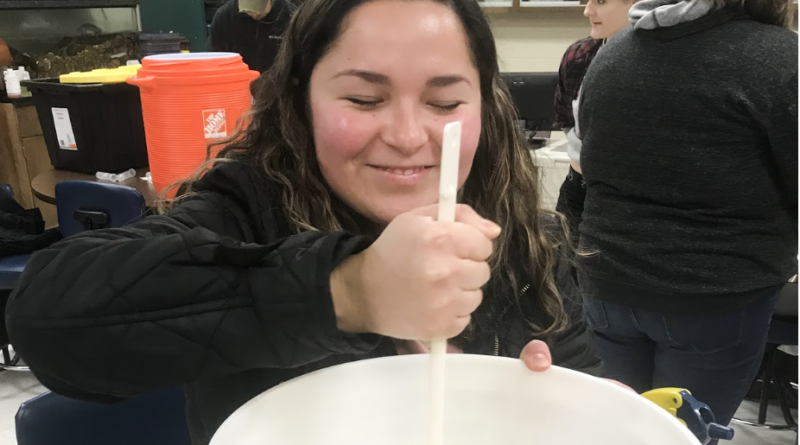Experiential courses live on after J-Term
At the beginning of 2018, students at Maryville College became sentimental as they knew it would be the last time they would take part in the popular January Term. In 2017, the College announced that the academic calendar would be changing, the biggest consequence being the loss of J-Term.
January Term, most commonly referred to as J-Term, was an opportunity for students to spend the entire month of January taking only one class. Some students opted to take a core class, getting it out of the way and opening up their spring and fall semesters.
Other students opted to take an experiential course. Experiential courses offer unique, kinesthetically fulfilling learning experiences. With the demise of J-Term, many students believed that they would lose the opportunity to take such classes.
The Maryville College website defines experiential learning as, “guided activity as a primary mode of learning,” and goes on to explain, “It often takes place outside the conventional setting of a classroom, library, or laboratory, and typically does not take place at a study desk.”
Two classes during the Spring 2019 semester aim to ensure that students still have the opportunity to learn a new skill and break the monotony of a normal three-credit class.
“While a student at Maryville College, I have been privileged to experience courses with a variety of topics differing from social justice and combating poverty, to beer brewing,” said Jacob Williams, a senior Economics major. “The experiential courses I have taken provided me with memories as well as opportunities to learn.”
Perhaps the most popular J-Term experiential class was “Wildlife Photography,” lead by Dr. Drew Crain. After the class went on a one-year hiatus, Dr. Crain altered the course to fit the framework of a normal semester. With some new additions, the class remains relatively the same.
“The course is very similar to how I understand it used to be. Dr. Crain still provides us cameras to use, and we still have the opportunity to explore the wildlife in Cades Cove weekly,” said Boomer Russell a senior Biology major. “What’s exciting about having Wildlife Photography in the spring semester is we will have the opportunity to take pictures in warmer temperatures that come with spring. We also plan to go camping as a class to have an opportunity to take pictures of nocturnal animals and early morning grazers.”
It is obvious to see that the “Wildlife Photography” class has found new life in the spring semester, and students are still excited to have the opportunity to take this class.
Another class that is being offered this spring is “Introduction to Brewing,” lead by Dr. Nathan Duncan. This experiential class aims to give students knowledge on small scale beer brewing processes.
The syllabus for the course summarizes the goal of the class best, stating, “This [the beer brewing process] will include hands on experimentation that will demonstrate the chemical processes that take place in the journey of water, grains, hops, and yeast becoming beer.”
The brewing class only meets once a week on Mondays from 6 p.m. to 9 p.m. This gives students enough time to gather materials, brew the beer, and prepare the beer for fermentation. Throughout the semester, students in the class will have to wait at least two weeks for fermentation to occur, so students in the class eagerly wait to taste-test their finished product.
Maria Vanegas, a junior Political Science major, explains her experience thus far in the class, “I’m excited to learn the science behind how to brew beer and to learn about the ingredients that make beers different from one another.”
As the spring semester is just beginning, it is clear to see that there are still opportunities for experiential learning at Maryville College, despite the absence of J-Term.
The college encourages active learning beyond one’s major as a way to implement a well-built liberal arts education. Students should take advantage of these courses to learn a new skill, or simply broaden their horizons.

